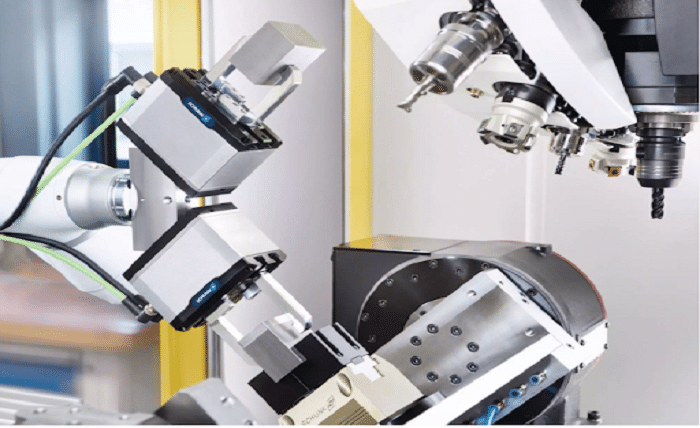Hybridoma technology stands as a cornerstone in the field of biotechnology, enabling the production of monoclonal antibodies with high specificity and uniformity. Introduced in the 1970s, hybridoma technology has revolutionized medical diagnostics, therapeutics, and research by providing a reliable method to generate antibodies tailored to target specific antigens. This comprehensive guide delves into the fundamentals of hybridoma technology, its development, applications, and the impact it has had on various scientific and medical disciplines.
1. Hybridoma Technology
Hybridoma technology is a sophisticated method used to produce monoclonal antibodies, which are identical antibodies derived from a single clone of cells. This technology combines the immortality of myeloma cells with the specificity of B-lymphocytes, resulting in hybrid cells known as hybridomas. These hybridomas can produce large quantities of a single type of antibody, making hybridoma technology invaluable for research, diagnostics, and therapeutic purposes. By ensuring uniformity and specificity, hybridoma technology has significantly advanced our ability to detect and treat various diseases.
2. Historical Development of Hybridoma Technology
The inception of hybridoma technology can be traced back to the groundbreaking work of Georges Köhler and César Milstein in 1975. Awarded the Nobel Prize in Physiology or Medicine in 1984, Köhler and Milstein’s innovation involved fusing antibody-producing B-cells from immunized mice with immortal myeloma cells. This fusion created hybridomas capable of producing specific antibodies indefinitely. The development of hybridoma technology marked a pivotal moment in immunology, providing a reliable and consistent source of monoclonal antibodies and paving the way for numerous scientific and medical advancements.
3. The Process of Hybridoma Technology
Understanding hybridoma technology involves grasping its multi-step process, which includes:
- Immunization: An animal, typically a mouse, is immunized with the antigen of interest to stimulate the production of B-lymphocytes that generate specific antibodies.
- Cell Fusion: The B-cells from the immunized animal are fused with myeloma (cancerous) cells using a fusion agent like polyethylene glycol.
- Selection: The resulting hybrid cells (hybridomas) are cultured in a selective medium, such as HAT (hypoxanthine-aminopterin-thymidine), which allows only the hybridomas to survive.
- Screening: Hybridomas are screened for the production of the desired antibody using assays like ELISA (enzyme-linked immunosorbent assay).
- Cloning: Positive hybridomas are cloned to ensure monoclonality, resulting in cell lines that produce a single type of antibody.
- Antibody Production: The cloned hybridomas are cultured in large quantities to produce monoclonal antibodies for various applications.
This meticulous process of hybridoma technology ensures the production of highly specific and consistent antibodies necessary for advanced scientific research and clinical applications.
4. Advantages of Hybridoma Technology
Hybridoma technology offers several advantages over traditional methods of antibody production:
- Specificity: Monoclonal antibodies produced through hybridoma technology are highly specific to a single epitope, reducing cross-reactivity and increasing accuracy in assays.
- Consistency: Hybridomas can be cultured indefinitely, providing a consistent and unlimited supply of identical antibodies, which is crucial for reproducibility in experiments and treatments.
- Versatility: Hybridoma technology can be applied to produce antibodies against a wide range of antigens, including proteins, carbohydrates, and small molecules.
- Cost-Effectiveness: Once established, hybridoma cell lines can produce large quantities of antibodies at a lower cost compared to polyclonal antibody production.
- Scalability: The technology allows for the scaling up of antibody production to meet the demands of large-scale research and clinical applications.
These benefits make hybridoma technology an indispensable tool in biotechnology, enabling advancements across various scientific and medical fields.
Read More: How to Join a Blooket Game Blooket Join
5. Applications of Hybridoma Technology in Medicine
Hybridoma technology has profound applications in the medical field, including:
- Diagnostic Testing: Monoclonal antibodies produced via hybridoma technology are used in diagnostic assays to detect specific biomarkers associated with diseases such as cancer, autoimmune disorders, and infections.
- Therapeutic Treatments: Monoclonal antibodies are employed as targeted therapies for conditions like rheumatoid arthritis, multiple sclerosis, and certain types of cancer. They work by binding to specific antigens, thereby modulating the immune response or directly attacking diseased cells.
- Vaccines: Hybridoma technology contributes to the development of vaccines by providing antibodies that can neutralize pathogens, enhancing vaccine efficacy.
- Transplant Medicine: Monoclonal antibodies help in preventing organ rejection by targeting and suppressing specific immune cells involved in the rejection process.
These medical applications demonstrate the pivotal role hybridoma technology plays in enhancing patient care and advancing therapeutic interventions.
6. Hybridoma Technology in Research
In the realm of scientific research, hybridoma technology is instrumental in:
- Basic Research: Monoclonal antibodies are essential tools in cell biology, molecular biology, and biochemistry for studying protein expression, cell signaling pathways, and gene regulation.
- Drug Development: Hybridoma technology facilitates the identification and validation of drug targets by providing specific antibodies that can inhibit or modify the function of target proteins.
- Immunohistochemistry: Monoclonal antibodies produced through hybridoma technology are used to visualize and localize proteins within tissue samples, aiding in the diagnosis and study of diseases.
- Flow Cytometry: Hybridoma technology provides antibodies that are critical for cell sorting and analysis in flow cytometry, enabling researchers to study cell populations and their characteristics.
These research applications highlight the versatility and indispensability of hybridoma technology in driving scientific discoveries and innovations.
7. Challenges and Limitations of Hybridoma Technology
Despite its numerous advantages, hybridoma technology faces certain challenges and limitations:
- Time-Consuming Process: The establishment of hybridoma cell lines can be time-consuming, often taking several months to yield stable and productive clones.
- Cost: Initial setup costs for hybridoma technology can be high, including expenses for cell culture facilities, fusion reagents, and screening assays.
- Genetic Instability: Hybridoma cells may undergo genetic changes over time, potentially affecting antibody production and consistency.
- Limited Longevity: Some hybridoma cell lines may lose their ability to produce antibodies after a certain period, necessitating frequent maintenance and cloning.
- Species Restriction: Hybridoma technology is primarily developed for mouse B-cells, which can lead to immune reactions if used therapeutically in humans without further modification.
Addressing these challenges requires ongoing research and technological advancements to enhance the efficiency and applicability of hybridoma technology.
8. Advancements in Hybridoma Technology
Recent advancements have sought to overcome the limitations of hybridoma technology and expand its capabilities:
- Humanized Monoclonal Antibodies: Techniques have been developed to humanize monoclonal antibodies produced through hybridoma technology, reducing the risk of immune reactions in human therapies.
- Improved Fusion Techniques: Innovations in cell fusion methods have increased the efficiency of hybridoma formation, reducing the time required to establish productive cell lines.
- Automated Screening Systems: Automation in the screening and cloning process has enhanced the speed and accuracy of identifying high-producing hybridomas in hybridoma technology.
- Genetic Engineering: Combining hybridoma technology with genetic engineering allows for the modification of antibodies, enhancing their specificity, affinity, and functionality for various applications.
- Alternative Hosts: Research into using alternative host cells, such as rat myeloma cells, has broadened the scope of hybridoma technology, enabling the production of antibodies with different characteristics.
These advancements continue to refine hybridoma technology, making it more efficient and versatile for future scientific and medical endeavors.
9. Ethical Considerations in Hybridoma Technology
The use of hybridoma technology raises several ethical considerations, primarily related to animal use and genetic manipulation:
- Animal Welfare: The production of monoclonal antibodies through hybridoma technology involves the use of animals, typically mice. Ensuring ethical treatment and minimizing animal suffering is paramount.
- Genetic Modification: The fusion of B-cells with myeloma cells involves genetic manipulation, raising concerns about the implications of creating hybrid cells.
- Access and Equity: Ensuring equitable access to the benefits of hybridoma technology, such as monoclonal antibody therapies, is a critical ethical issue, particularly in low-resource settings.
- Intellectual Property: The commercialization and patenting of monoclonal antibodies produced via hybridoma technology can lead to ethical debates regarding ownership and accessibility.
Addressing these ethical concerns requires stringent regulatory frameworks, ethical guidelines, and ongoing dialogue within the scientific community to ensure responsible use of hybridoma technology.
10. The Future of Hybridoma Technology
Looking ahead, the future of hybridoma technology is promising, with potential advancements poised to further enhance its applications and efficiency:
- Integration with Other Technologies: Combining hybridoma technology with technologies like CRISPR-Cas9 for precise genetic editing can lead to the development of more effective and specialized monoclonal antibodies.
- Expansion to Other Species: Research into hybridoma formation using cells from species other than mice can diversify the range of antibodies and reduce immunogenicity in therapeutic applications.
- Enhanced High-Throughput Screening: Advancements in high-throughput screening techniques will streamline the identification of high-yield hybridoma clones, accelerating the production process.
- Personalized Medicine: Hybridoma technology could play a pivotal role in personalized medicine by producing monoclonal antibodies tailored to individual patient profiles and specific disease markers.
- Sustainability: Developing more sustainable and cost-effective methods for hybridoma technology can make monoclonal antibody production more accessible and environmentally friendly.
These future directions indicate that hybridoma technology will continue to evolve, maintaining its significance in biotechnology and medicine while addressing current challenges and expanding its capabilities.
Conclusion
Hybridoma technology has undeniably transformed the landscape of biotechnology by providing a reliable method for producing monoclonal antibodies with unparalleled specificity and consistency. From its historical development to its wide-ranging applications in medicine and research, hybridoma technology continues to drive significant advancements and innovations. Despite facing challenges such as cost and genetic instability, ongoing advancements, and ethical considerations are shaping the future of hybridoma technology, ensuring its continued relevance and impact. As science and technology progress, hybridoma technology remains a vital tool in the pursuit of knowledge, disease treatment, and the betterment of human health.
FAQ
1. What is hybridoma technology?
Hybridoma technology is a method used to produce large quantities of identical (monoclonal) antibodies by fusing a specific type of B-cell with an immortal myeloma cell, resulting in a hybrid cell known as a hybridoma.
2. How does hybridoma technology work?
Hybridoma technology involves immunizing an animal to produce B-cells that generate antibodies against a specific antigen. These B-cells are then fused with myeloma cells to create hybridomas, which can continuously produce the desired monoclonal antibodies.
3. What are the main applications of hybridoma technology?
Hybridoma technology is primarily used in producing monoclonal antibodies for diagnostic testing, treatments, research, vaccine development, and transplant medicine, among other applications.
4. What are the advantages of using hybridoma technology?
The advantages of hybridoma technology include high specificity of antibodies, consistency in antibody production, cost-effectiveness, scalability, and versatility in producing antibodies against a wide range of antigens.
5. Are there any ethical concerns associated with hybridoma technology?
Yes, hybridoma technology raises ethical concerns related to animal welfare, genetic manipulation, intellectual property, and equitable access to its benefits. Addressing these concerns requires adherence to ethical guidelines and regulatory standards.





